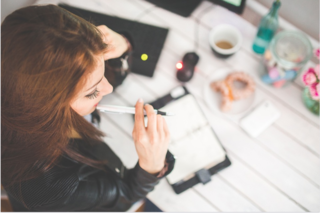Extroversion
When Social Distancing Is Your Daily Norm
Not all of us are extraverts shouting our discomfort from the rooftops.
Posted April 9, 2020

There is no doubt that no one thought the “roaring '20s” would roar in quite this way. The global coronavirus pandemic will likely not only define a mere year or decade, but likely an entire generation and way of life. A profound article by Politico suggests 34 critical ways in which life will never be the same after this global crisis. From how we view religion to health, politics and our collective identities, we are all making meaning of these events in our own ways.
As one of many millennials who makes their daily living from the confines of my home, there have not been significant shifts in my day to day life. I generally don’t get in my car and drive somewhere daily. I don’t have meetings with others in big conference rooms. Being self-employed, I don’t have after-work “happy hours” and I’ve even been known to prefer livestreaming church to attending in public during flu season simply because it seems to make more sense. Do I go stir crazy at times? The answer is a resounding yes. But it is also a life I have chosen (for now) that suits me and my introverted HSP personality very well. I was, in fact, that child who was terrified of preschool and cried so much that my mom let me skip it. I had the same reaction to kindergarten and she eventually started attending with me (as a volunteer, of course).
As a therapist, I am passionate about people’s lives, but I also need a lot of recovery time when interacting with others. When I give public talks, I need a day (or more) to come down from it. While it has been perplexing at times to witness the childless millennial extraverts floundering in a doom of quarantine, it has also been an added challenge operating as usual when the world appears to be falling apart. Whereas for some teachers school was canceled outright, for many of my professor friends, they scrambled to learn online teaching technologies. Meanwhile, I had previously booked myself to the max this spring and have had to realize that although I am my own boss, and many are getting a variant of time “off” (minus the obvious with children to manage full-time while balancing careers), I can slow down as well.
Even for the most laser-focused among us, it can be challenging to set aside thoughts of a grieving world in crisis and what it will mean not only for us, but our loved ones and the world at large. Are we entering a recession? What if a second and third wave of the virus hits? What events will keep getting postponed and canceled? Most of us are planners by nature, and attempting to plan in such uncertain times can be mind-boggling, to say the least.
It is also understandable that for those who have maintained social distancing as a way of life that existential concerns are even more likely to abound. How much meaning does our work have? Should we have been interacting more with others when we had the chance? How will social distancing come to define a generation? In our neighborhood, the quarantine has been cause for an eerie sort of celebration. Children playing the streets rejoicing, parents laughing as though nothing is going on. While it is certainly critical to keep up our spirits and sense of lightheartedness, there is also something troubling about these behaviors. Are we really acknowledging that is going on, or are we being so individualistic that we simply don’t see how interconnected we all are? When shelter-in-place, social distancing, and quarantine measures eventually cease, it will be fascinating to bear witness to the changes we make in our lives and world.


